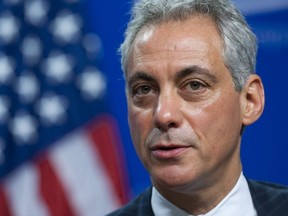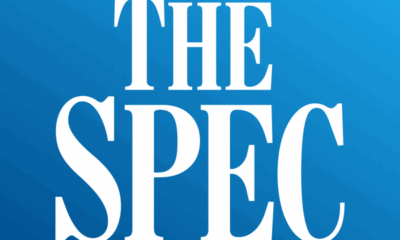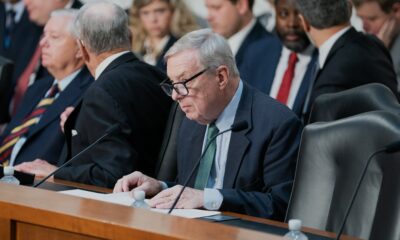Politics
Shutdown Reflects Democratic Struggles Amid Economic Concerns

The recent government shutdown has intensified scrutiny on the Democratic Party, which critics argue is struggling to present viable solutions to pressing economic issues. According to Star Parker, founder of the Center for Urban Renewal and Education, the shutdown serves as a “smokescreen” for a party perceived to be devoid of innovative ideas.
Parker highlights a fundamental reality: nations and individuals must evolve or face decline. Drawing on the insights of historian Arnold Toynbee, who stated that “all great nations commit suicide,” she emphasizes that the current state of the nation reflects a growing discontent among Americans. Polls indicate a significant decline in national pride and confidence in key institutions, which Parker associates with the Democratic leadership’s inability to recognize and address systemic problems.
Parker argues that the Democratic Party is advocating for more government intervention as a solution to the nation’s challenges. She asserts that this approach is misguided, suggesting that increased government spending and programs are not the answers to America’s economic woes. “If more government and more spending are the problem and not the solution, then the Democrats are in great political trouble,” she contends.
Economic growth serves as a crucial indicator of a nation’s health, and Parker cites data to support her argument. The average annual growth rate of the U.S. economy has decreased from 3.64% between 1950 and 2000 to 2.2% projected from 2000 to 2025. This downturn, she argues, is due to the federal government’s increasing consumption of the economy, which rose from 14.2% of gross domestic product (GDP) in 1950 to an anticipated 23% in 2024.
Parker points to the alarming growth of federal debt, which has now surpassed $37 trillion. This figure exceeds projections for the U.S. GDP in 2025, estimated at $30.5 trillion. She expresses concern over the implications for future generations, noting that current spending is financed through debt rather than direct taxation, shifting the financial burden to the youth.
In light of these challenges, Parker asserts that Democratic leaders are seeking new strategies to rally public support for increased government funding, with healthcare emerging as a focal point. She cites Veronique de Rugy of the Mercatus Center, who notes a significant rise in taxpayer coverage of Obamacare premiums—from 68% in 2014 to 93% by current estimates.
Further complicating the narrative, Donna Brazile, former chair of the Democratic National Committee, has suggested that Democrats should frame their policies around “affordability.” Parker interprets this as a tactic to mask the true costs associated with government subsidies.
Ultimately, Parker calls for a return to principles that foster economic freedom and market efficiency, arguing that these elements were fundamental to America’s past successes. “We’re going broke and need to restore freedom, markets, and efficiencies,” she states, framing this approach as essential to revitalizing the nation.
The current political landscape underscores a critical juncture for the Democratic Party. As debates surrounding government spending and economic policy continue, the implications for American citizens remain significant, warranting close attention as the situation unfolds.
-

 Politics4 weeks ago
Politics4 weeks agoSecwepemc First Nation Seeks Aboriginal Title Over Kamloops Area
-

 World5 months ago
World5 months agoScientists Unearth Ancient Antarctic Ice to Unlock Climate Secrets
-

 Entertainment5 months ago
Entertainment5 months agoTrump and McCormick to Announce $70 Billion Energy Investments
-

 Science5 months ago
Science5 months agoFour Astronauts Return to Earth After International Space Station Mission
-

 Lifestyle5 months ago
Lifestyle5 months agoTransLink Launches Food Truck Program to Boost Revenue in Vancouver
-

 Technology3 months ago
Technology3 months agoApple Notes Enhances Functionality with Markdown Support in macOS 26
-

 Lifestyle3 months ago
Lifestyle3 months agoManitoba’s Burger Champion Shines Again Amid Dining Innovations
-

 Top Stories2 months ago
Top Stories2 months agoUrgent Update: Fatal Crash on Highway 99 Claims Life of Pitt Meadows Man
-

 Politics4 months ago
Politics4 months agoUkrainian Tennis Star Elina Svitolina Faces Death Threats Online
-

 Sports5 months ago
Sports5 months agoSearch Underway for Missing Hunter Amid Hokkaido Bear Emergency
-

 Politics5 months ago
Politics5 months agoCarney Engages First Nations Leaders at Development Law Summit
-

 Technology5 months ago
Technology5 months agoFrosthaven Launches Early Access on July 31, 2025





















